Sanctions Address Checker
Check if a wallet is sanctioned
Enter any Ethereum or Bitcoin wallet address to see if it's flagged in global sanctions databases.
How This Works
Our tool simulates how authorities check addresses against sanctions databases. Real systems like Elliptic and TRM Labs scan billions of transactions to identify connections to:
- Russian entities
- Iranian individuals
- North Korean hacking groups
- Darknet marketplaces
- Ransomware operators
Note: Privacy coins like Monero (XMR) cannot be checked through this tool. Transactions on Ethereum and Bitcoin networks are fully traceable.
When criminals use Bitcoin or Ethereum to move money from drug sales, ransomware, or sanctioned regimes, they think they’re invisible. But they’re not. Every transaction leaves a digital fingerprint on the blockchain - and authorities are learning how to read it.
How blockchain forensics works
Unlike bank accounts, crypto wallets don’t need names or IDs. But every time someone sends Bitcoin, Ethereum, or any other coin, that transaction is permanently recorded on a public ledger. Blockchain forensics turns that transparency into a tool for tracking crime. Forensic tools don’t just look at one transaction. They follow chains of transfers across dozens, sometimes hundreds, of wallets. If money moves from a darknet marketplace to a mixer like Tornado Cash, then to an exchange, then to a personal wallet - the system maps the whole path. It doesn’t matter if the funds get shuffled through 20 different addresses. Patterns emerge. Amounts, timing, and connections between wallets reveal hidden links. Modern systems use machine learning to spot known laundering patterns: fan-in/fan-out (many small deposits into one wallet, then out to many others), gather-scatter (collecting funds from multiple sources before sending them out), and stack patterns (accumulating small amounts over time to avoid detection). These aren’t guesses. They’re based on real cases, like the Helix laundering operation that moved over $300 million in illicit Bitcoin. Investigators in 2016 spent months manually tracing transactions. Today, software does it in minutes.How authorities catch sanctioned crypto flows
Countries like the U.S., U.K., and Canada have imposed sanctions on Russian entities, Iranian individuals, and North Korean hacking groups. These sanctions ban financial dealings with them. But when someone tries to send crypto to a wallet tied to a sanctioned actor, blockchain forensics flags it. Platforms like Elliptic and TRM Labs maintain databases of known risky addresses - wallets linked to darknet markets, ransomware operators, or sanctioned entities. When a crypto exchange processes a transaction, it checks the sender and receiver against these lists in real time. If there’s a match, the transaction is blocked or reported. One of the most common evasion tactics is using cross-chain bridges. A criminal might move Bitcoin to Ethereum via a bridge, then use a mixer to obscure the trail, then convert it to Monero for extra privacy. But even this doesn’t hide everything. Forensic tools now track asset movement across chains. If funds originate from a sanctioned wallet on Ethereum and later appear in a Monero transaction, the connection can still be reconstructed. The MPOCryptoML system, a new research method developed in 2024, improves detection accuracy by up to 10% over older tools. It doesn’t just look at single transactions - it analyzes the entire graph of wallet interactions, assigning risk scores based on behavior, not just addresses. This helps authorities prioritize investigations when they’re overwhelmed with thousands of alerts.Who uses blockchain forensics
It’s not just law enforcement. Crypto exchanges like Bitget and Kraken use these tools to comply with regulations. If they don’t screen wallets, they risk fines, license revocation, or being shut down entirely. Banks that offer crypto services - like JPMorgan or TD Canada Trust - rely on the same tech to check if their customers are trading with sanctioned entities. Regulators like Canada’s Financial Transactions and Reports Analysis Centre (FINTRAC) and the U.S. Treasury’s Financial Crimes Enforcement Network (FinCEN) require exchanges to report suspicious activity. Blockchain forensics gives them the evidence they need. In 2023, FinCEN fined a U.S.-based exchange $10 million for failing to monitor transactions tied to a sanctioned Russian entity - the case was built entirely on blockchain tracing. Even non-financial agencies use it. The Internet Watch Foundation, which fights child exploitation online, works with blockchain forensics firms to track payments made in crypto for illegal imagery. If someone buys abuse material using Bitcoin, investigators can trace the payment to the seller’s wallet - even if the site is hosted on the dark web.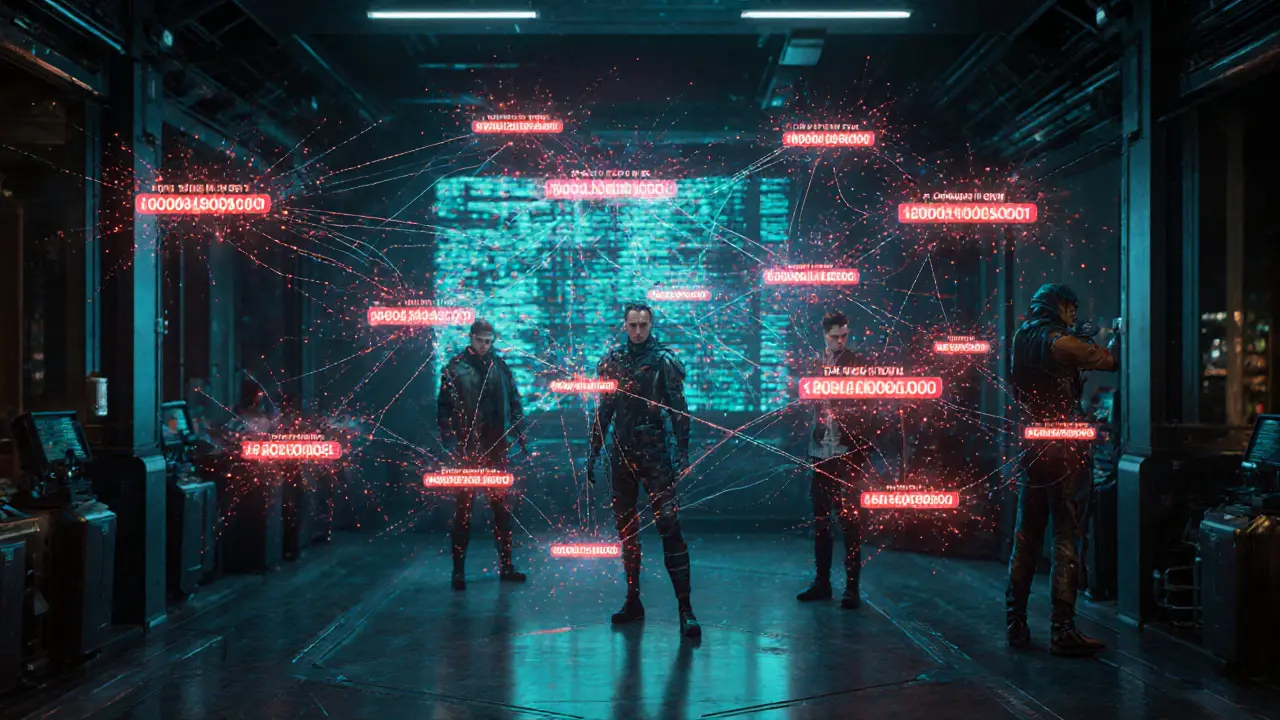
Challenges and limitations
It’s not foolproof. Privacy coins like Monero and Zcash are designed to hide transaction details. Mixers and tumblers still make tracing harder. Some criminals use decentralized exchanges (DEXs) that don’t require KYC, making it harder to link wallets to real identities. But even these tools have weaknesses. Mixers don’t erase the origin - they just obscure it. Forensic analysts can still detect when funds enter a mixer and later exit into a known exchange. If the exit wallet has ever been linked to a sanctioned address, the trail can be rebuilt. Another challenge is speed. New blockchains pop up every year - Solana, Avalanche, Polygon, Internet Computer Protocol. Forensic tools must constantly update to track them. What worked in 2022 doesn’t always work in 2025. That’s why companies like Elliptic hire former hackers and blockchain developers to stay ahead of new techniques.What’s next for crypto sanctions detection
The next wave of blockchain forensics focuses on automation and prediction. Instead of just reacting to transactions, systems are starting to predict who might try to evade sanctions next. By analyzing wallet behavior over time - how often they transact, who they interact with, how they move funds - models can flag high-risk actors before they even use a mixer. Cross-border cooperation is also improving. In 2024, the U.S., Canada, the U.K., and the EU launched a shared blockchain intelligence hub. Now, when Canada flags a wallet tied to a sanctioned Russian group, that data is instantly available to U.S. and U.K. investigators. This cuts down delays that used to let criminals move funds across borders before anyone noticed. The permanent nature of blockchain means every transaction adds to the puzzle. The more data we collect, the better the tools get. What looks random today might be clearly linked tomorrow. That’s why even criminals who think they’re safe are playing a losing game.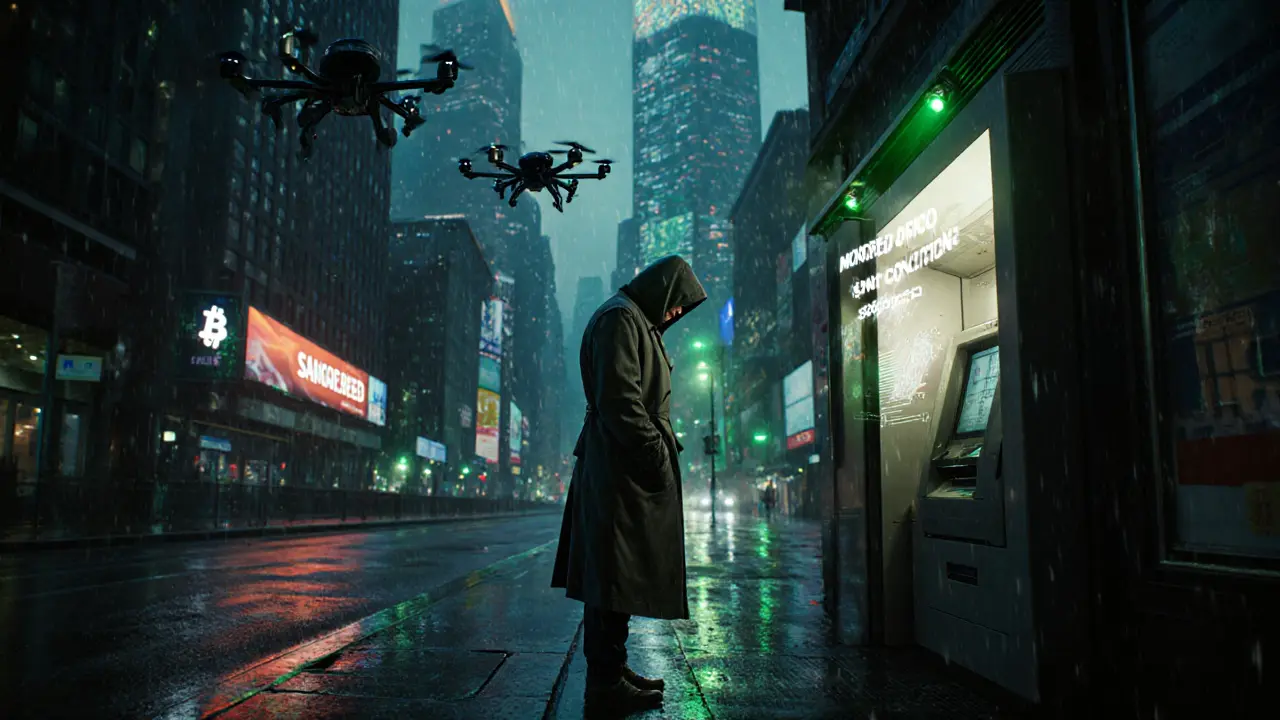
How businesses stay compliant
If you run a crypto exchange, wallet service, or even a fintech startup that accepts crypto, you need a compliance program built on blockchain forensics. That means:- Integrating real-time screening tools like Elliptic or TRM Labs into your transaction system
- Training staff to understand blockchain patterns, not just compliance forms
- Keeping your sanctions list updated - new addresses get added every week
- Reporting suspicious activity immediately - delays can mean heavy fines
What you need to know
You don’t need to be a hacker or a cop to understand this: blockchain forensics is now a core part of global financial security. Cryptocurrency isn’t anonymous - it’s pseudonymous. And authorities have the tools to turn that pseudonymity into accountability. If you’re using crypto for legal purposes, you have nothing to fear. But if you’re trying to hide money from sanctions, tax authorities, or law enforcement - you’re not as hidden as you think. The blockchain remembers everything. And someone, somewhere, is already looking.Can blockchain forensics trace Monero transactions?
Monero is designed to hide transaction details, making it much harder to trace than Bitcoin or Ethereum. However, forensic tools can still detect when Monero is converted back into traceable assets - like when someone trades Monero for Bitcoin on a centralized exchange. If the exchange wallet is linked to a sanctioned address, investigators can trace the path backward to the original source. While Monero transactions themselves remain private, the points where they interact with regulated systems leave visible footprints.
Do all crypto exchanges use blockchain forensics?
Most major exchanges - including Coinbase, Kraken, Bitget, and Binance - use blockchain forensics tools to comply with global regulations. Smaller or decentralized exchanges may not, but they face higher legal risks. Regulators are cracking down on platforms that don’t screen for sanctioned addresses. In 2024, two Canadian-based exchanges were shut down for failing to implement basic transaction monitoring.
How do authorities know which wallets are sanctioned?
Governments and financial intelligence units maintain lists of known risky addresses - wallets linked to criminal activity, terrorist financing, or sanctioned individuals. These lists are updated daily based on investigations, court rulings, and tips from private firms like Elliptic and TRM Labs. For example, after the 2022 hack of the Ronin Network, the U.S. Treasury added over 1,200 wallets tied to North Korean hackers to its sanctions list.
Can you avoid blockchain forensics by using multiple wallets?
Using many wallets doesn’t make you invisible. Forensic tools analyze transaction patterns, not just individual addresses. If you send small amounts from 20 different wallets to one exchange, that’s a classic “fan-in” pattern - and it’s a red flag. Systems flag these behaviors automatically. The more you try to hide, the more you stand out.
Is blockchain forensics legal?
Yes. Blockchain forensics only analyzes publicly available data on open ledgers. No hacking, no private keys, no unauthorized access. It’s like tracking cash movements through security camera footage - the footage is public, and analyzing it is legal. Courts in the U.S., Canada, and the EU have repeatedly upheld the legality of blockchain tracing in criminal cases.
What happens if you accidentally send crypto to a sanctioned wallet?
If you accidentally send funds to a sanctioned address, your exchange will likely freeze the transaction and report it. You won’t be arrested - but you may need to prove the transaction was unintentional. Keep records of your transfers, especially if you’re trading with new or unfamiliar addresses. Most platforms allow you to dispute flagged transactions if you can show legitimate intent.
How accurate are blockchain forensics tools today?
Leading platforms like Elliptic and TRM Labs report accuracy rates above 95% for identifying known risky addresses. For detecting new or unknown laundering patterns, accuracy is lower - around 75-85% - but improving fast thanks to machine learning. The MPOCryptoML system, tested in 2024, improved detection precision by over 9% compared to older tools. No system is perfect, but they’re good enough to shut down major criminal operations.

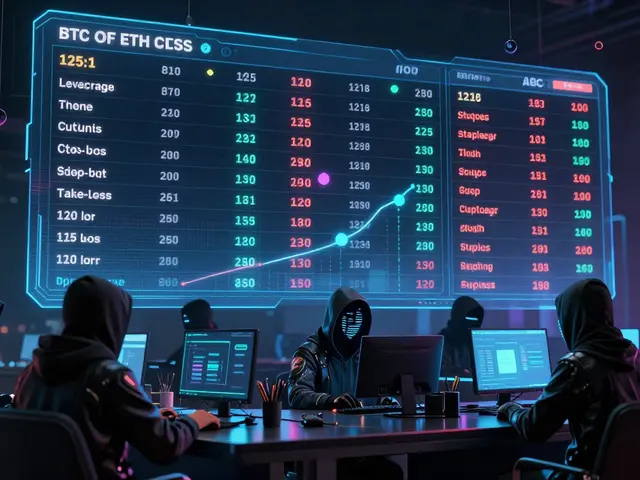
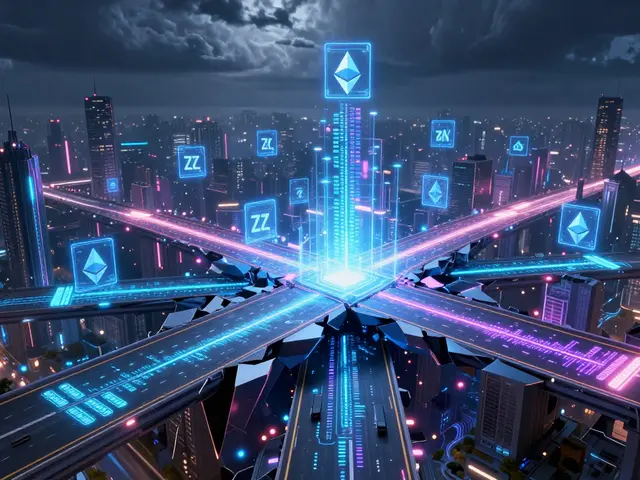
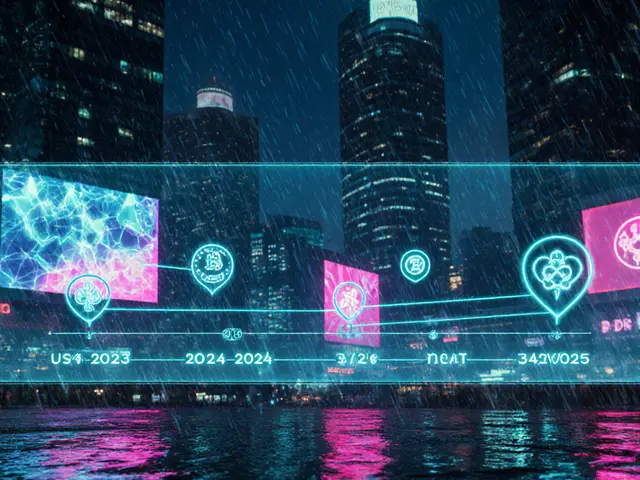
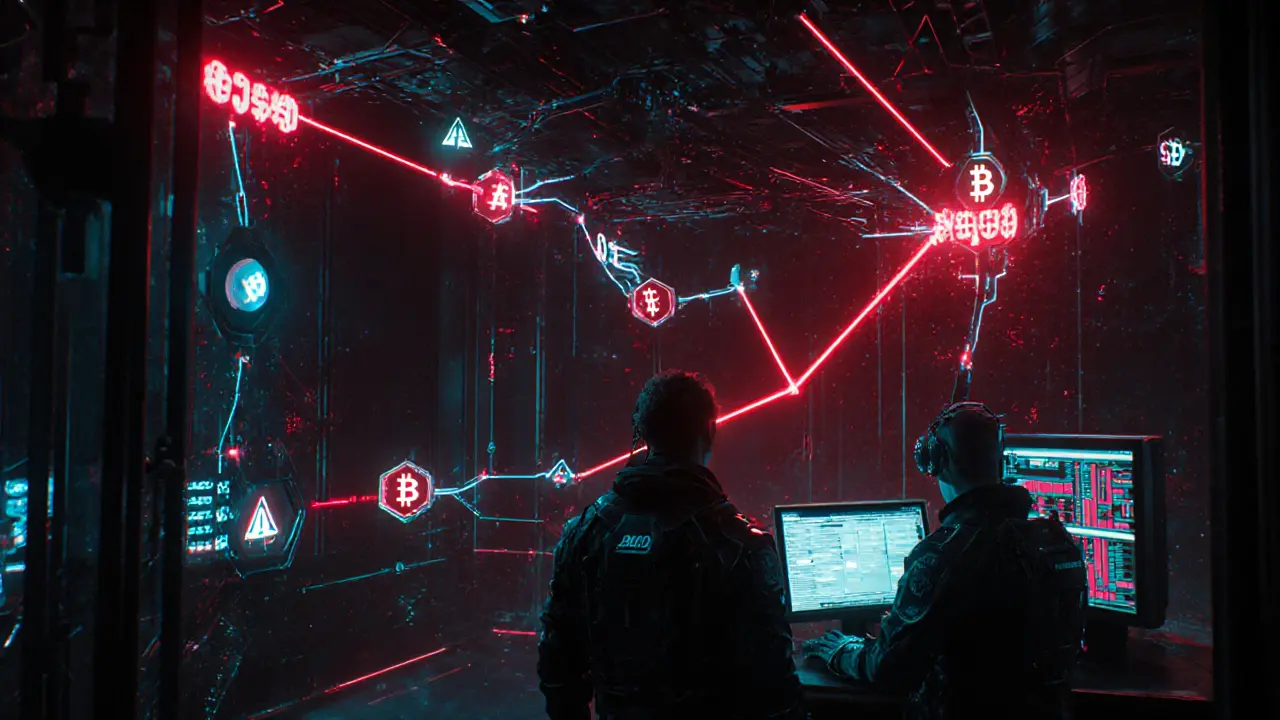
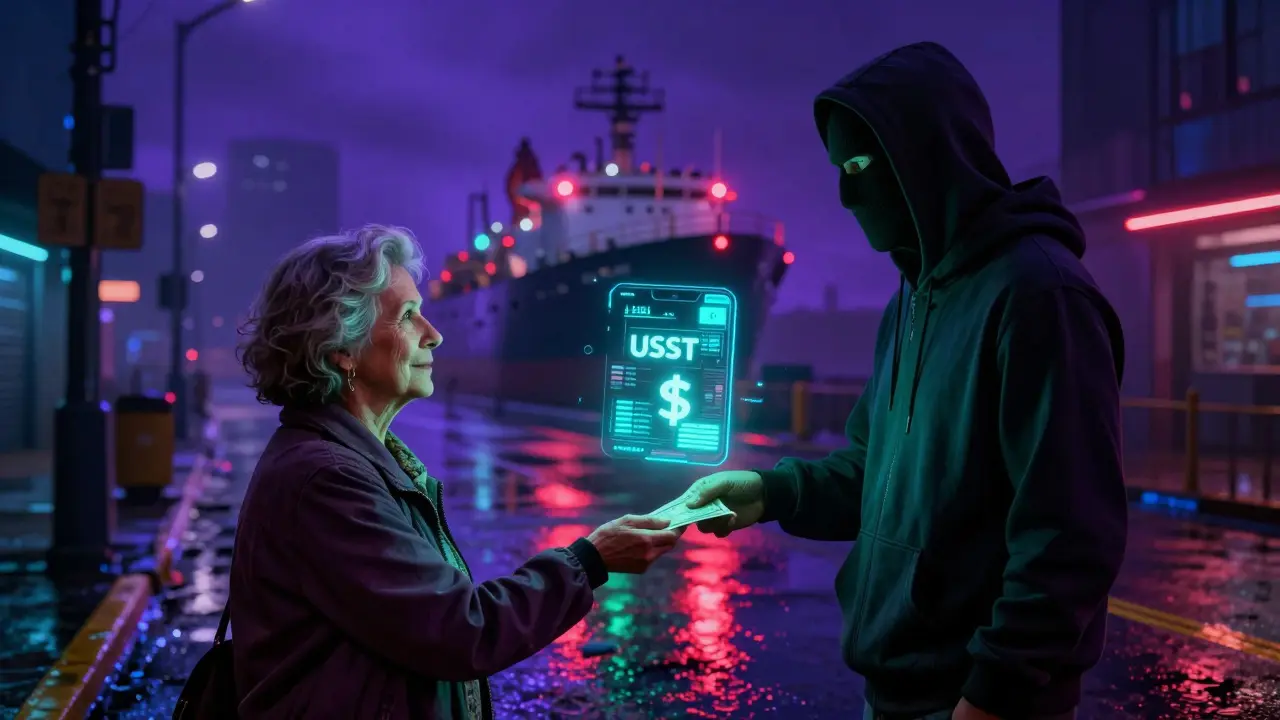
Comments
23 Comments
mark Hayes
Bro this is wild 😎 I thought crypto was anonymous but turns out the blockchain is like a giant public CCTV camera. Even your sneaky mixer transactions leave footprints. Who knew? 👀
Derek Hardman
The sophistication of modern blockchain forensic tools is truly remarkable. It is evident that the integration of machine learning algorithms has significantly enhanced the ability to detect illicit financial flows, thereby reinforcing the integrity of global financial systems.
Eliane Karp Toledo
This is all a government psyop. They don’t care about crime-they care about control. The blockchain isn’t ‘transparent,’ it’s a surveillance tool disguised as innovation. Next they’ll track your coffee purchases. #BigCryptoBro
Phyllis Nordquist
It is important to acknowledge that blockchain forensics, while technologically advanced, operates within a legal and ethical framework designed to uphold financial compliance. The use of publicly available ledger data for regulatory purposes is both lawful and necessary to mitigate systemic risk.
Eric Redman
So let me get this straight… you’re telling me I can’t even send my Bitcoin to my buddy who lives in a country with bad vibes without some algorithm flagging me like I’m a drug lord?? 😭 I just wanted to buy him a pizza 🍕
Hanna Kruizinga
They’re lying. They can’t trace anything. The real criminals are the ones running the tools. This is just a cover for mass surveillance. You think your wallet is safe? Nah. They’re watching you. Every. Single. Transaction.
Shaunn Graves
If this is so accurate, why are we still seeing billions in crypto thefts? You're telling me these tools are 95% accurate but criminals still walk away with millions? That’s not a tool, that’s a joke with a fancy name.
Jessica Hulst
You know what’s ironic? We built this whole decentralized utopia thinking we’d escape the state… only to realize the state built the walls before we even started digging. The blockchain didn’t free us-it just gave the cops a better map. 🤷♀️ And now we’re all just NPCs in their algorithmic game of ‘spot the bad guy.’ I miss when the internet was just memes and cat videos.
Kaela Coren
The technical details presented are accurate and align with current industry standards. However, one must consider the implications of centralized oversight on pseudonymous systems. The trade-off between compliance and privacy warrants deeper societal discussion.
Nabil ben Salah Nasri
I love how this tech is helping people!! 🌍❤️ Like, seriously-when a mom in Nigeria finds out her kid’s ransomware payment was blocked? That’s justice. And when the IWF traces crypto used for child exploitation? That’s not surveillance-that’s saving lives. 🙌 Keep going, forensic heroes!
alvin Bachtiar
Let’s be real: these ‘forensic tools’ are just glorified pattern-matchers with a PR team. They flag ‘fan-in/fan-out’ like it’s a crime. Meanwhile, grandma sends 0.01 BTC to her grandkid for Christmas-boom, flagged. The system is built to generate false positives so they can justify their $500M budgets. Pathetic.
Josh Serum
You people don’t get it. This isn’t about crime-it’s about control. If you’re using crypto for anything other than buying weed or paying for VPNs, you’re already a criminal in their eyes. They want you to use banks. They want you to be tracked. Don’t fall for the ‘security’ lie.
DeeDee Kallam
i just sent some btc to my friend and now im scared lmao what if he used it for drugs?? i didnt know!! why is this so hard??
Bhavna Suri
This is very interesting. But why do governments need to know where money goes? Is this not a violation of personal freedom? In my country, we do not trust such systems.
Elizabeth Melendez
Honestly, this gives me hope!! 🌟 I used to think crypto was just for speculators and shady dudes, but knowing that this tech is helping stop child exploitation and ransomware? That’s huge. I’ve started using a compliant exchange now-just to feel like I’m doing my part. Small steps, right? 💪
Phil Higgins
The fundamental tension here lies not in the technology, but in the philosophical underpinning of privacy versus accountability. The blockchain, as an immutable ledger, does not inherently possess moral value-it is a mirror. What we choose to reflect in it defines our society’s trajectory.
Genevieve Rachal
Oh wow, so now we’re giving the state a real-time map of everyone’s finances? Brilliant. Next they’ll require you to submit your wallet address when you buy groceries. At least when you use cash, you can pretend you’re free.
Eli PINEDA
wait so if i use monero then send it to binance then to btc is that traceable?? i just wanna know bc i dont wanna get in trouble
Debby Ananda
How quaint. You’re all so impressed by a system that merely observes what’s already public. Real privacy? That’s for people who understand zero-knowledge proofs-not for those who think Tornado Cash is a ‘mixer’ and not a ‘digital ghost.’ 🤓
Vicki Fletcher
I’m just wondering… if someone sends me 0.005 BTC from a wallet that once interacted with a mixer… am I now ‘complicit’? Do I need to run a blockchain audit on every transaction I receive? This feels like guilt by association… and it’s terrifying.
Nadiya Edwards
This is how they take your freedom. First they say ‘it’s just for criminals.’ Then they say ‘it’s for national security.’ Then they say ‘everyone must comply.’ Soon, you won’t be allowed to hold crypto unless you beg the government for permission. Wake up.
Ron Cassel
The government’s ‘blockchain forensics’ is just a fancy word for digital profiling. They don’t care about money laundering-they care about silencing dissent. Remember when they froze crypto donations to Ukraine? That wasn’t about sanctions. That was about control.
bob marley
I’ve been studying this since 2013. You think they can trace Monero? Please. They can’t even trace the guy who bought the Bitcoin used to pay for the 2016 DNC hack. This whole thing is theater. The real criminals are the regulators.
Write a comment